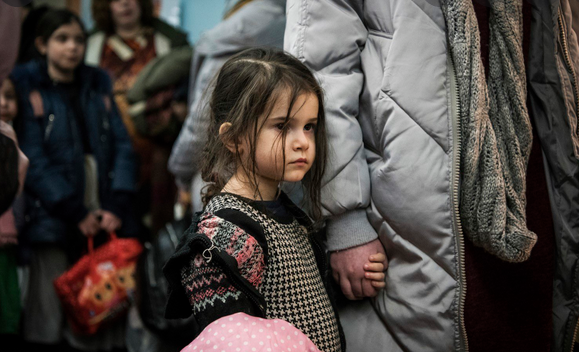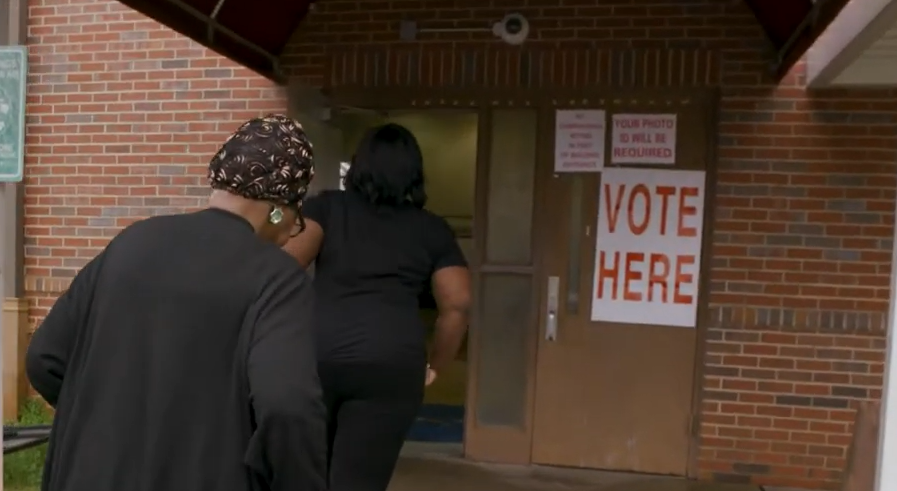Photos: Twitter
The UK’s response to the ongoing refugee crisis in Ukraine has been described as slow, woeful, and inhumane.
Russia invaded its neighbour Ukraine on February 24, causing devastating humanitarian crises analysts believe could be the worst since WWII. Since then, Britain has been among the countries drumming support for the invaded country. It has offered and pledged hundreds of millions of pounds to help the invaded country and slammed Russia with various sanctions in solidarity with Ukraine.
However, its attitude to the fleeing refugees from the war front has been widely criticised.

The Home Office announced a temporary visa concession for Ukrainians on February 27 to help bring Ukrainians to the UK. This came after the Boris Johnson-led government was called out for not doing enough to help the vulnerable fleeing Ukrainian refugees. Initially, the route only covered immediate relatives of British nationals, which are: a spouse or civil partner, a child under the age of 18, an unmarried partner (must be in a relationship for at least two years and have been living together), a parent if the individual living in Ukraine is under the age of 18, and an adult family member they provide care for who they live with due to a medical condition.
On March 1, following a call by Labour to include other family members, Home Secretary widened the scheme to include parents, siblings, adult children, grandparents, and their immediate family members.
However, the application process for the scheme has been “shockingly low and painfully slow,” according to the Shadow home secretary Yvette Cooper. In the first weekend after the concession scheme was announced, some media reports showed that the UK had only issued 50 visas from the scheme despite having thousands of applications. However, the government later debunked that, saying it had issued up to 300 visas. Some applicants also described the process as hard, with complaints that the appointment site crashed midway through. As of March 15, the figure was said to have risen to 4,000 visas out of over 17,000 applications submitted.
Compared to other European countries, the UK has so far welcomed one of the lowest numbers of Ukrainian refugees. Some UK residents who wanted to bring over their Ukrainian family members were in limbo and helpless as their fleeing relatives were stuck in other countries due to the slow visa process. A woman whose 73-year-old mother was stranded in Germany said the UK’s response to the fleeing refugees is “inhumane.”
Since the invasion, over 2.8 million have fled Ukraine, according to a CNN report. Most are pouring to the neighbouring countries, Poland, Hungary, Romania, and Slovakia. So far, Poland has taken over 1.7 million Ukrainian refugees, Hungary 255,291, Slovakia 205,000, Moldova 106,994, Romania 84,671. Austria, France, Belgium, Estonia, and Italy are other countries having more Ukrainian refugees than the UK.
The Russia-Ukraine war has exposed the UK’s subtle long-term message that refugees are not welcome. This is not the first time it will be criticised for the poor handling of refugees and asylum seekers. In February, after the deaths of some migrants at the English Channel, President Macron of France accused Britain of managing its immigration system through “hypocrisy.”

A 2015 analysis by the Guardian showed that out of Europe’s big five nations – the UK, Germany, France, Spain, and Italy – refugees and asylum seekers in the UK had the harshest experience. It was found that the UK took fewer refugees, offered less generous financial support, provided housing that’s often substandard, did not allow asylum seekers the right to work, and sometimes forced people into homelessness and destitution due to bureaucratic delays.
For instance, the number of Syrian refugees received by Britain from 2015 to 2020 was 29,053. However, over the same period, Germany received 621,680 Syrians, followed by Sweden 80,875, Greece 78,605, Hungary 70,225, Austria 53,640, Netherlands 41,035, and France 34,015, a Eurostat record shows.
A 2021 report by the Guardian, titled Performative Cruelty: UK Treatment of Refugees Worst Ever, also showed that the treatment got worst ever last year. Its body language in past weeks could be an indication that the UK government doesn’t care about refugees as much as other big European nations. While EU nations are allowing Ukrainian refugees three-year residency without a visa, the UK hasn’t lifted restrictions on entry, which explains why the process has been dramatically slow.
The UK Home Office has also been accused of misleading information to exaggerate the help it has so far rendered to the fleeing refugees. This followed the home secretary’s claim that a visa application centre had been set up in Calais, where many Ukrainians had gathered. Reports, however, show that hundreds of Ukrainian refugees were turned back at the UK border at Calais. After promising that its “surge team” would be available in Calais to support Ukrainian refugees, the government is later said there is no visa application centre (VAC) in the city and asked them to go elsewhere. Ms. Patel later said she decided not to have a VAC at Calais because traffickers might exploit refugees in the city. The misleading information is another factor that has made the entire visa process discouraging and cumbersome for applicants.
Meanwhile, a UK-based immigration law firm, Immigration Advice Service (IAS), has taken the initiative to offer free legal advice to Ukrainian nationals and residents who are both in the UK or attempting to migrate to the UK following the Russian invasion. The free advice scheme was launched due to IAS’s growing concern over incorrect and misleading advice provided to Ukrainians by the Home Office helpline.
“A group of lawyers at IAS have volunteered their time to provide this assistance following alarming conversations with a number of clients who had received incorrect, misleading, and often dangerous advice from the helpline set up by the Home Office,” IAS Immigration Casework Supervisor Natalie Pashley, said.
A statement on its Visa Concessions for Ukrainian webpage reads: “We are offering free advice sessions to help you [Ukrainians and their family members] navigate this difficult time.”
Olusegun Akinfenwa writes for Total Law Immigration Lawyers, a law firm offering global immigration services and legal representation for refugees and asylum seekers.

















